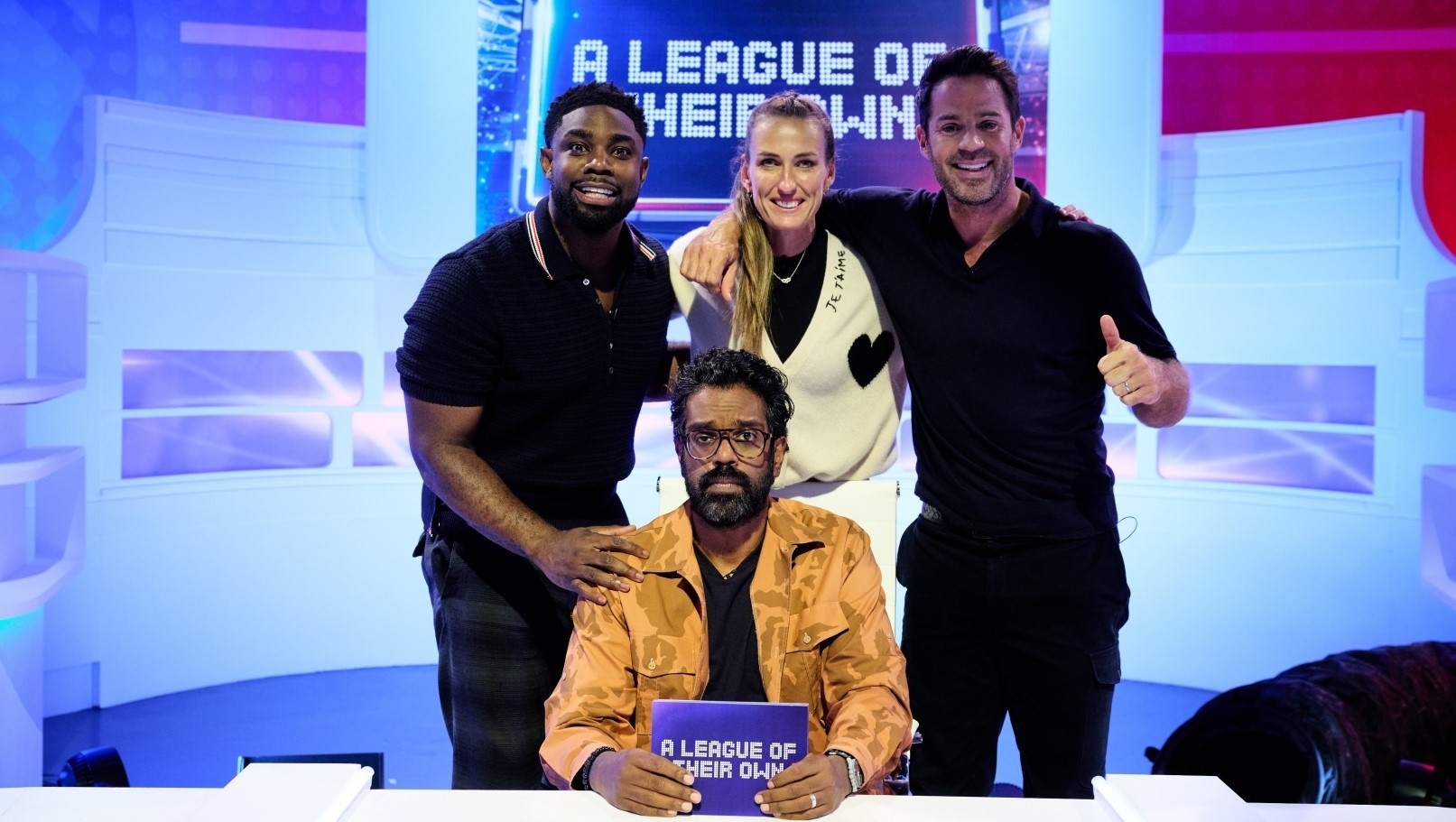Murnaghan Interview with Justine Greening MP, International Development Secretary, 24.01.16
ANY QUOTES USED MUST BE ATTRIBUTED TO MURNAGHAN, SKY NEWS
DERMOT MURNAGHAN: Now then, as you just heard, Jeremy Corbyn telling Sky News Britain should be doing more to help ease Europe’s migration crisis. That comes amid reports this morning that the Prime Minister is considering plans to let thousands of unaccompanied migrant children who have already arrived in Europe into the UK, amongst those children will of course be many girls and young women and it is they who are the focus of a new UN panel for women’s economic empowerment, led by the International Development Secretary Justine Greening who joins me now and a very good morning to you. Let’s talk about the broader point there, about trying to break the chains of dependency for girls and women and there is going to be a high panel in the United Nations. Some people are going to say this is just going to be another talking shop, a worthy talking shop but a talking shop.
JUSTINE GREENING: Well I think it is going to achieve some real concrete action. We know that no country can successfully develop if half its population gets left behind and that’s the same for economies but around the world in many countries women aren’t allowed to open a bank account, they may not be able to inherit assets, they might not be able to own land, they might not even be able to have a mobile so if we’re really going to unlock their potential and see those economies take off, those things need to change and this panel, this group of experts that the Secretary-General has pulled together – yes, I’m on that panel, the UK has put women and girls at the heart of our development work but it also includes Christine Lagarde of the IMF, we’ve got Jim Kim who runs the World Bank, we have business leaders on it, civil society, people like Oxfam are represented on it – coming together to say how can we change the terms of trade so that women can play their full role in those economies as they go around the world.
DM: Okay, so people are going to listen to that and say wow, I’m four square behind you, of course I am but how in reality do you make that happen? How would you apply this to say Saudi Arabia where culturally, religiously, politically it’s ingrained within society that women are second class citizens?
JUSTINE GREENING: Well you’re right, it’s not just about what governments need to do so this is about changing laws, this is about businesses looking at how they can bend the ark of their own organisations to get more women into the workplace, it’s about how attitudes – as you say – need to change, the social norms that still in many, many parts of the world expect women to be in the home and have no opportunity whatsoever to have a livelihood or have a job. If we are going to really take a big step forward we need to get all of those things changed together and it’s not just in the developing countries that we need to see change. Of course here in the UK we’ve been reforming our own laws to make it easier for women to get back into the workplace after they’ve had children, to be able to share parental leave and have more parental leave when women have children. All those things make it easier for women to play a full role so this group will look at how we can turbo charge that around the world and how we can really change the terms of trade for women in the workplace.
DM: People will want to know though, Secretary of State, the practical implementation. I mean you’ve got quite a pot of money in International Development to distribute for varieties of causes around the world, are you going to and are you now saying look, I’m not putting money into this because I believe the United Kingdom believes that you have policies, have society which hasn’t understood the role of women in it?
JUSTINE GREENING: Women’s participation in our workforce has never been higher which is great but what we’re doing is also putting that desire to see women play a full role into our development work, we’re putting girls through school, we’ve been leading the charge on tackling FGM, ending child marriage, these are things that keep girls out of school. We’re putting investment into making sure that women can have access to family planning so that they can have more control over when and how many children they have. We’ve been pioneering work in places like Rwanda to allow land titles to be put in place and many of the people who have been gaining from that are women. We have been around the world helping women get access to credit so we have a lot of experience and what we now want to do is bring this into this panel and see how we can work collectively at the UN level to move this forward.
DM: So you are bringing positive discrimination to international aid?
JUSTINE GREENING: Essentially we now have the Gender Equality Act that Bill Cash took through our own parliament which means that we have to make sure that improving the prospects of women and girls is a the heart of every single programme that we do which I think is right but this isn’t just the right thing to do, it’s the smart thing to do. If you look at a report by McKinsey which came out towards the end of last year, it said if you just got every country to just do a better job to the best in its region of getting women into livelihoods, into the workplace, it would actually by 2025 lift global GDP by $12 trillion, 11%. So this is a huge leap not just in terms of pushing forward on women’s rights and women’s empowerment, it is actually one of the biggest things that we can also do to help safeguard and protect the global economy and growth going forward.
DM: Let me put to you some of Jeremy Corbyn’s points that he gave in that interview with Faisal Islam, our political editor, and he may very well be listening to this interview going we hear you saying all those wonderful things but look, the points he made about our direct contribution to the migration crisis within Europe, we’re not doing enough.
JUSTINE GREENING: I thoroughly reject that. No country in Europe has done more to help Syrian refugees. The UK has been there since day one, world-wide we’re the second biggest bilateral donors helping refugees on the ground and our focus very much has been on meeting refugee’s first choice. I’ve been out in the region many times over the last few years, I was out just last week and the refugees that I talked to want to stay close to home, they want to stay in the region that they are familiar with. What we’re doing the week after next in London, we’re holding a conference that isn’t just about raising more funding to help UN agencies and NGOs do the day to day support for refugees that they need but we’re also galvanising support for Jordan and Lebanon to be able to help create jobs for refugees in those countries, to help make sure that every single Syrian refugee child is in school by the end of this coming academic year. It’s in meeting these hopes and these aspirations for refugees that we can help them do what they want to do which is fundamentally to stay close to home. Coming to Europe for many of them is a last resort, not a first resort and we should be meeting their first choice by helping them in the region.
DM: Nevertheless there are going to be 20,000 people in total coming to the UK from the camps and you’re thinking of loosening that a bit and taking another 3,000 children, unaccompanied children, can you confirm that?
JUSTINE GREENING: So you’re right, we have also played our role closer to home here in Europe and we’ve said that over the course of this parliament we will resettle 20,000 refugees. We are going to do that in a safe and measured and a managed way by working with UN agencies, taking them directly from the region, it means we can focus on the most vulnerable people including children who otherwise would have no chance to make the kind of journey that we’ve seen other refugees make and of course we’ve been helping on the ground in Europe too so the UK has been working with UNHCR on registering migrants as they arrive. We’ve been helping to provide blankets, medical support, working with the Red Cross for migrants when they have been in countries like Greece and Italy and also the Balkans. So we are playing a role, we are looking at whether we can do more in relation to …
DM: 3000 children, parallels being drawn with Kinder Transport.
JUSTINE GREENING: Absolutely, in relation to unaccompanied children because children have always been from day one at the heart of our response in the region. We’ve been the country pioneering the ‘No Lost Generation’ initiative which is getting kids back into school, we’ve been working with UNICEF on the ground in countries like Jordan and Lebanon to create safe places where children can get reunited with their family if they get lost, we’ve been the country that’s helping children get trauma counselling so we have absolutely put children at the centre of our work and will continue to look at how we can do that …
DM: But this specific plan, we understand it is a variety of charities in the main putting the pressure, putting the recommendation to the Prime Minister, your counsel to Mr Cameron would be listen very carefully to them about these 3000 children?
JUSTINE GREENING: That’s exactly what we’re doing and I think that’s the right thing so we’ve steadily evolved our approach as this crisis has evolved, we’ve been right at the forefront frankly of helping children who have been affected by this crisis and will continue to look at how we can do that over the coming days and weeks.
DM: You mentioned there about the work that the UK is doing to register people as they first arrive within the European Union but of course as you know it is being discussed by the European Union more widely, those rules might have to change, the so called Dublin Settlement that you register in the first EU country that you come into. What would be the UK’s attitude to that?
JUSTINE GREENING: Well we’ve used the Dublin Convention very actively in returning people back to a country where they could have initially made an asylum claim so we don’t want to see that change and actually I think what we’ve seen over the last few months is this concept of the Schengen area really not working in practice. It is showing many of the reasons why the UK in the first place chose not to be part of it so clearly this is part and parcel why for us immigration and free movement of people is at the centre of what we’re trying to get renegotiated as a new UK package by the Prime Minister. I think what it’s showing is the kind of concerns that the UK has raised in this area are actually very valid and are increasingly being experienced and shared by many countries across the EU.
DM: So you don’t think it’s going to irritate some of our EU partners as the Prime Minister is in the heart, the nitty-gritty of these renegotiations?
JUSTINE GREENING: I think what’s very clear is that this issue of freedom of movement of people has to be able to work practically and what we’re seeing is that the reality is that the Schengen area isn’t working effectively for countries, countries themselves who are even in it are choosing to put in place their own controls. It is really showing why we chose to be not in Schengen in the first place and why that for us certainly was the right decision but in the end I think what it’s showing is that the UK’s concerns over how Europe works are not only valid but they are not only issues for us, they are issues for the whole of the EU and the sooner we can reach a consensus and a conclusion on how to work more effectively, the better.
DM: Okay, Secretary of State, thank you very much indeed, very good to see you. Justine Greening, International Development Secretary there.




